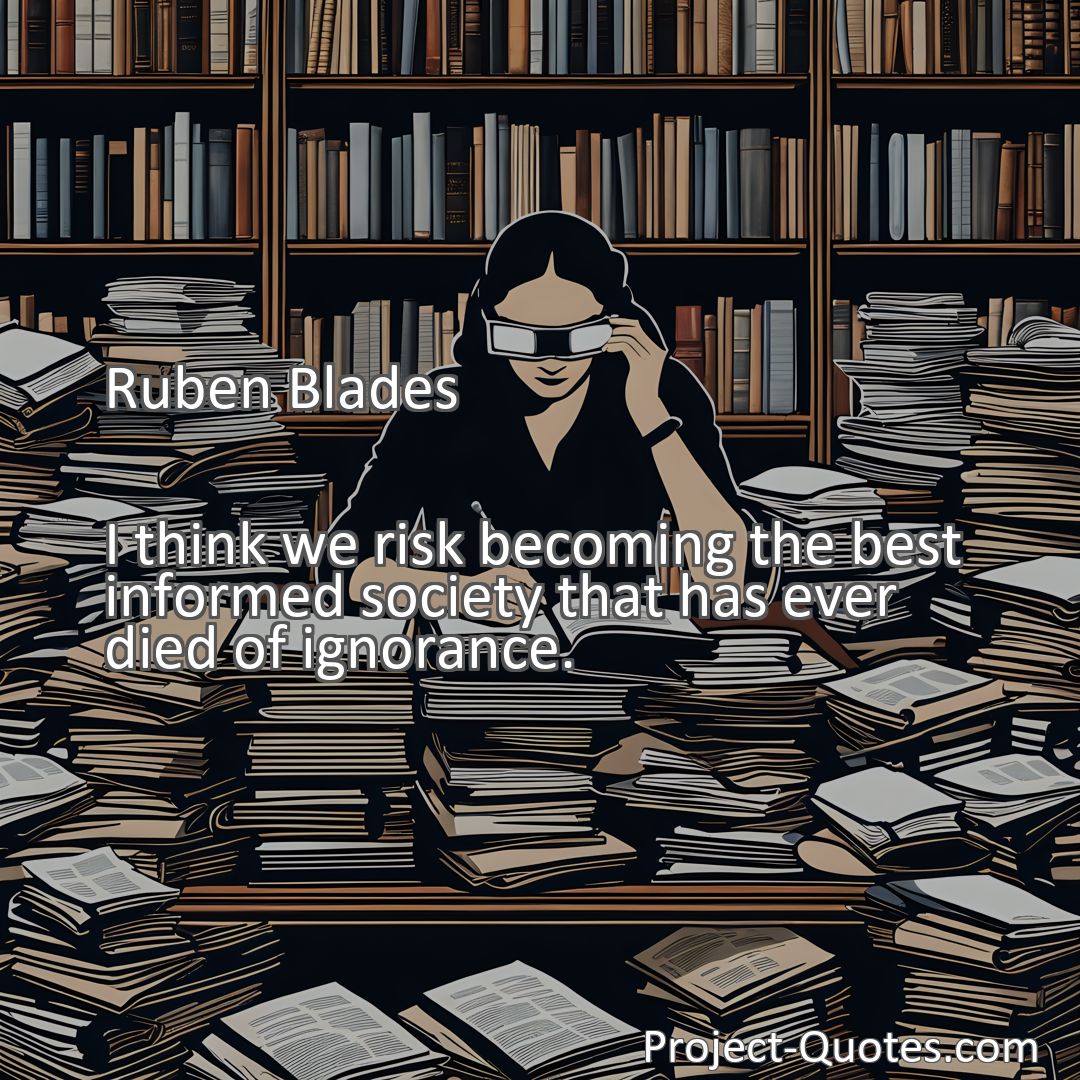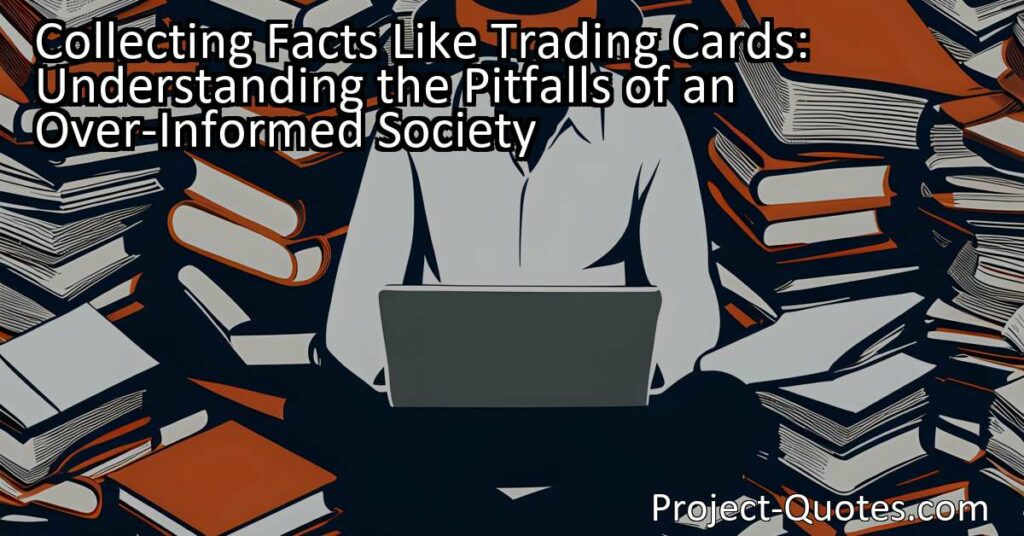I think we risk becoming the best informed society that has ever died of ignorance.
Ruben Blades
In a world where information is easily accessible, it’s important to understand the pitfalls of an over-informed society. Simply skimming the surface and accepting quick answers can lead to ignorance and poor decision-making. Instead, we must learn to think critically, question information sources, and use our knowledge wisely to navigate life’s challenges.
Table of Contents
Meaning of Quote – I think we risk becoming the best informed society that has ever died of ignorance.
“Hey there! Let’s chat about something Ruben Blades once said, ‘I think we risk becoming the best informed society that has ever died of ignorance.’ That’s quite a thought, isn’t it? Imagine having all the information in the world but not really understanding any of it. That’s like having a library full of books but not knowing how to read. So, what does this really mean?
Lets start off with the term ‘best informed society.’ Today, we have more information at our fingertips than ever before. Thanks to the internet, we can look up anything, anytime, and just about anywhere. Its pretty amazing, right? You have a question, you Google it, and bam, youve got your answer in seconds. Our smartphones are like little pocket-sized wizards, giving us the scoop on everything from the history of the dinosaurs to the latest cat videos.
However, that’s where Ruben Blades’ point becomes really interesting. Having all this info doesn’t mean we truly ‘get it.’ Sometimes, we skim the surface, settle for quick answers and move on. We might catch headlines, memes, or tweets, but that doesn’t mean we’ve dug deep or really grasped the topic. This is what Blades was talking about the ‘dying of ignorance’ part.
Ignorance means lacking knowledge, understanding, or awareness about something. It’s kind of like someone giving you a fancy, high-tech tool but not explaining how to use it. If we don’t understand the information we receive or question where it comes from, we could end up making choices that aren’t so great or believing things that just aren’t true. And sometimes, it’s easier to just listen to what we want to hear, rather than facing facts that might be harder to swallow.
Now, think of it like this: You spot a flashy advertisement for a shiny new pair of shoes. The ad is filled with cool buzzwords and claims that these shoes will make you run faster and jump higher. It’s tempting to just take their word for it because the ad looks so convincing. But that’s where the risk of ignorance comes in. Without doing a bit of research, asking questions, or reading some reviews, you won’t really know if those shoes are as good as they claim to be.
The same idea applies to bigger issues like climate change, health care, or even what’s happening in other parts of the world. Just because we see a headline that says something dramatic, it doesn’t tell the whole story. And if we don’t venture beyond that headline, we could be missing out on important details that could change our perspective.
Learning to think critically is like learning to decode a secret message. Its about asking questions: Who is giving me this information? What do they want me to believe or do? Is there another side to this story? Critical thinking helps us not just accept things at face value but also to dig deeper and understand the bigger picture.
Let’s be real, though. It’s not just about gathering information and thinking critically. It’s also about what we do with what we learn. It’s important to share our knowledge and talk about it, to make sure what we’re learning isn’t just stuck in our heads but is put to good use. Talk with friends or family about what you find out, and listen to what they’ve learned, too. You might be surprised by how much you can learn from someone else’s perspective.
Another big part of avoiding ignorance is media literacy. That sounds fancy, but it’s really just about understanding the media – like websites, social media, TV shows, and games – and being smart about what you’re watching and reading. It means asking more of those critical thinking questions and also understanding why certain messages are being sent. Who made this, and why are they showing it to you? Are they trying to sell you something, change your mind, or inform you?
Sure, its easy to feel like you’re in the loop because you’ve got a device dinging with notifications all day long. But being truly informed is about the quality of the information you get, not just the amount. It’s like choosing to eat food that’s good for you instead of just snacking on whatever’s around. You have to pick and choose the right bits of information to ‘feed’ your brain with.
Now, being young, energetic, and curious is an advantage. You’ve got the energy to question things and the tools to do the research. You’re learning new stuff every day and figuring out how to put that knowledge to use. With all that power, you can help make sure our society doesn’t just become well-informed, but also well-understood.
In the end, Ruben Blades’ words remind us that it’s not enough to just know stuff. We have to understand what it means and how it affects us and the world. That way, we don’t just collect facts like trading cards; we use them like a map to help us navigate through life’s big adventures.
So keep asking, keep learning, and remember that the true superpower isn’t just information, it’s the wisdom to use it wisely. Together, let’s make sure we’re a society that thrives, not just survives, on the richness of our knowledge.”
I hope this quote inspired image brings you hope and peace. Share it with someone who needs it today!


